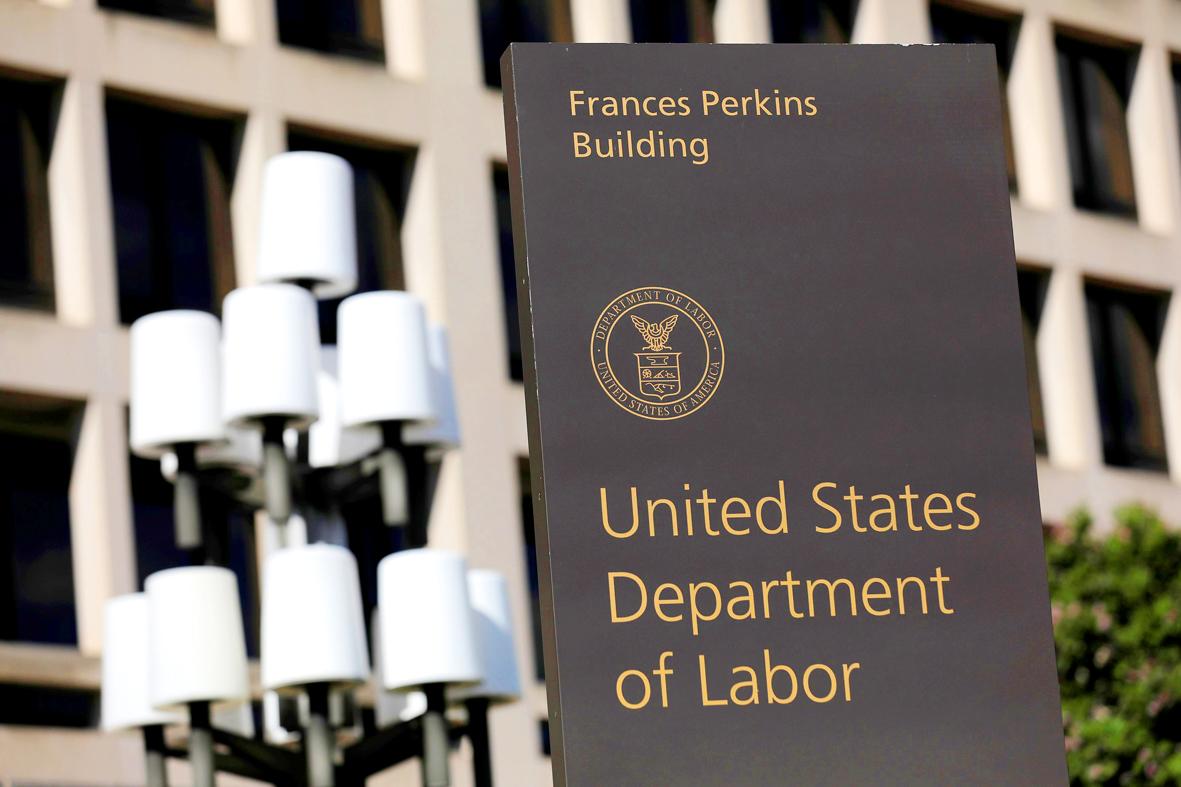Fish caught by vessels bearing Taiwan’s national flag have been classified as products of forced labor, based on the conditions under which the crews work, an annual report by the US Department of Labor said on Wednesday.
The Goods Produced by Child Labor or Forced Labor report said that Taiwan’s longline fishing fleet of 1,100 vessels, the world’s second-largest after China’s, employs about 35,000 migrant workers, mostly from Indonesia and the Philippines.
“Similar to crews on Chinese-flagged vessels, crews on Taiwan-flagged vessels face confiscation of documents, long days with little rest, physical and verbal abuse, and lack of payment,” the report said.

Photo: Reuters
Taiwan’s inclusion in the report means that US companies buying fish from Taiwanese suppliers could come under close scrutiny at US customs and the supply chain could be at risk of suspension.
However, the Fisheries Agency yesterday said that the nation’s fish exports to the US from its distant-water catch would not immediately be affected.
The agency said its top priorities are to improve the welfare of migrant fishers, ensure the observance of laws by the fishing industry and to keep the US informed of the nation’s efforts on such issues.
Council of Agriculture Deputy Minister Chen Tien-shou (陳添壽) said that the human rights of fishery workers is an intra-agency concern that also involves the Presidential Office, adding that the government in 2017 amended the nation’s laws to comply with the International Labour Organization’s Work in Fishing Convention.
The agency is launching a trial project to install wireless networks on ships, so that migrant workers can remain in contact with their friends and family, Chen said.
“Having the Internet on ships would also allow further transparency of information about what is happening on the ship,” he said.
Fisheries Agency Director-General Chang Chih-sheng (張致盛) said that the government would continue its dialogue with the US.
The nation’s management of its longline fishing fleet has improved significantly over the year and the government has established facilities for rest and recreation in major fishing ports, such as Pingtung County’s Donggang (東港) and Yilan County’s Suao (蘇澳), Chang said.
The government is also collaborating with local welfare and religious groups to provide religious services for migrant workers, he said.
The agency is further looking to amend the law so that the government would be able to prohibit foreign ships from docking in the nation should incidents of crew abuse be proven, he added.
Greenpeace USA senior oceans adviser Andy Shen said that major US retailers, such as Walmart and Costco, and national tuna brands, such as Bumble Bee that are supplied by the Taiwanese fleet would have to assure their customers that they are not profiting from and perpetuating modern slavery on the high seas.
“The companies have a responsibility to use their economic power to change the Taiwanese government’s and seafood industry’s human rights and environmental policies and practices,” Shen said.
Taiwan-based Human Rights for Migrant Fishers urged the government to introduce laws before the end of the current legislative session to enhance the protections and rights of migrant fishers, and to end forced labor and human trafficking on Taiwanese-flagged vessels.

CHAOS: Iranians took to the streets playing celebratory music after reports of Khamenei’s death on Saturday, while mourners also gathered in Tehran yesterday Iranian Supreme Leader Ayatollah Ali Khamenei was killed in a major attack on Iran launched by Israel and the US, throwing the future of the Islamic republic into doubt and raising the risk of regional instability. Iranian state television and the state-run IRNA news agency announced the 86-year-old’s death early yesterday. US President Donald Trump said it gave Iranians their “greatest chance” to “take back” their country. The announcements came after a joint US and Israeli aerial bombardment that targeted Iranian military and governmental sites. Trump said the “heavy and pinpoint bombing” would continue through the week or as long

TRUST: The KMT said it respected the US’ timing and considerations, and hoped it would continue to honor its commitments to helping Taiwan bolster its defenses and deterrence US President Donald Trump is delaying a multibillion-dollar arms sale to Taiwan to ensure his visit to Beijing is successful, a New York Times report said. The weapons sales package has stalled in the US Department of State, the report said, citing US officials it did not identify. The White House has told agencies not to push forward ahead of Trump’s meeting with Chinese President Xi Jinping (習近平), it said. The two last month held a phone call to discuss trade and geopolitical flashpoints ahead of the summit. Xi raised the Taiwan issue and urged the US to handle arms sales to

State-run CPC Corp, Taiwan (CPC, 台灣中油) yesterday said that it had confirmed on Saturday night with its liquefied natural gas (LNG) and crude oil suppliers that shipments are proceeding as scheduled and that domestic supplies remain unaffected. The CPC yesterday announced the gasoline and diesel prices will rise by NT$0.2 and NT$0.4 per liter, respectively, starting Monday, citing Middle East tensions and blizzards in the eastern United States. CPC also iterated it has been reducing the proportion of crude oil imports from the Middle East and diversifying its supply sources in the past few years in response to geopolitical risks, expanding

Pro-democracy media tycoon Jimmy Lai’s (黎智英) fraud conviction and prison sentence were yesterday overturned by a Hong Kong court, in a surprise legal decision that comes soon after Lai was jailed for 20 years on a separate national security charge. Judges Jeremy Poon (潘兆初), Anthea Pang (彭寶琴) and Derek Pang (彭偉昌) said in the judgement that they allowed the appeal from Lai, and another defendant in the case, to proceed, as a lower court judge had “erred.” “The Court of Appeal gave them leave to appeal against their conviction, allowed their appeals, quashed the convictions and set aside the sentences,” the judges